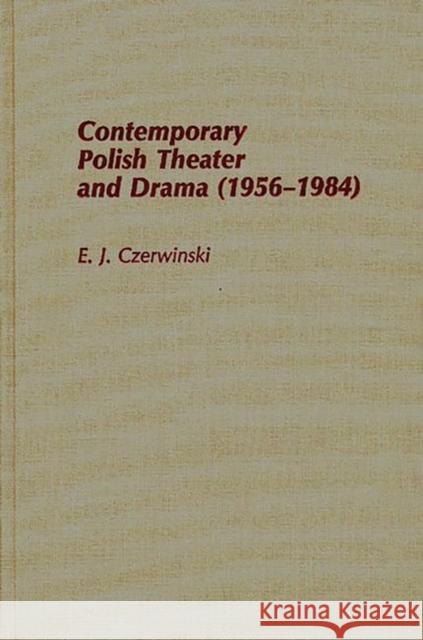Contemporary Polish Theatre and Drama (1956-1984) » książka
Contemporary Polish Theatre and Drama (1956-1984)
ISBN-13: 9780313244025 / Angielski / Twarda / 1988 / 174 str.
A valuable resource and guide for scholars, students, and theater professionals, this book will be appreciated by general readers with an interest in contemporary theater. It is an appropriate choice for large or small theater collections.
"Books on the Theater"
Although European critics have recognized Poland's distinctive contributions to theatre since the beginning of the twentieth century, American audiences first became acquainted with Polish drama only in the 1960s through the work of Jerzy Grotowski and his avant-garde Laboratory Theatre. Grotowski's productions served to stimulate interest in several other Polish dramatists whose plays have since been produced by Off-Broadway and university theatre groups. Until the publication of Professor Czerwinski's study, however, little information on Polish theatre as a whole has been available to English-speaking readers and audiences. This volume is the first to survey the work of the most important and representative contemporary Polish dramatists and directors and to analyze their contributions to both Polish and Slavic theatrical traditions.
A chronology of important premieres and other productions provides a guide to the unfolding of Polish drama since 1956. Descriptions of dramatic works give detailed summaries of plot, action, and characters as well as information on productions and how they fared under Polish censorship. The impact of censorship on dramatic writers is discussed, particularly the response of cloaking social commentary in elaborate metaphor. In this connection, the jester-priest metaphor, which was associated with the Polish Theater of the Absurd during the repressive 1960s, is of particular significance in the development of Polish drama. Professor Czerwinski looks at the influence of Dialog, the Polish monthly that served as the unofficial organ of artists and intellectuals during the 1950s and 1960s and introduced every important dramatist of the period. He considers the drama of the Solidarity and Post-Solidarity periods, thoughfully assessing the effects of the labor union movement on Polish theater.











